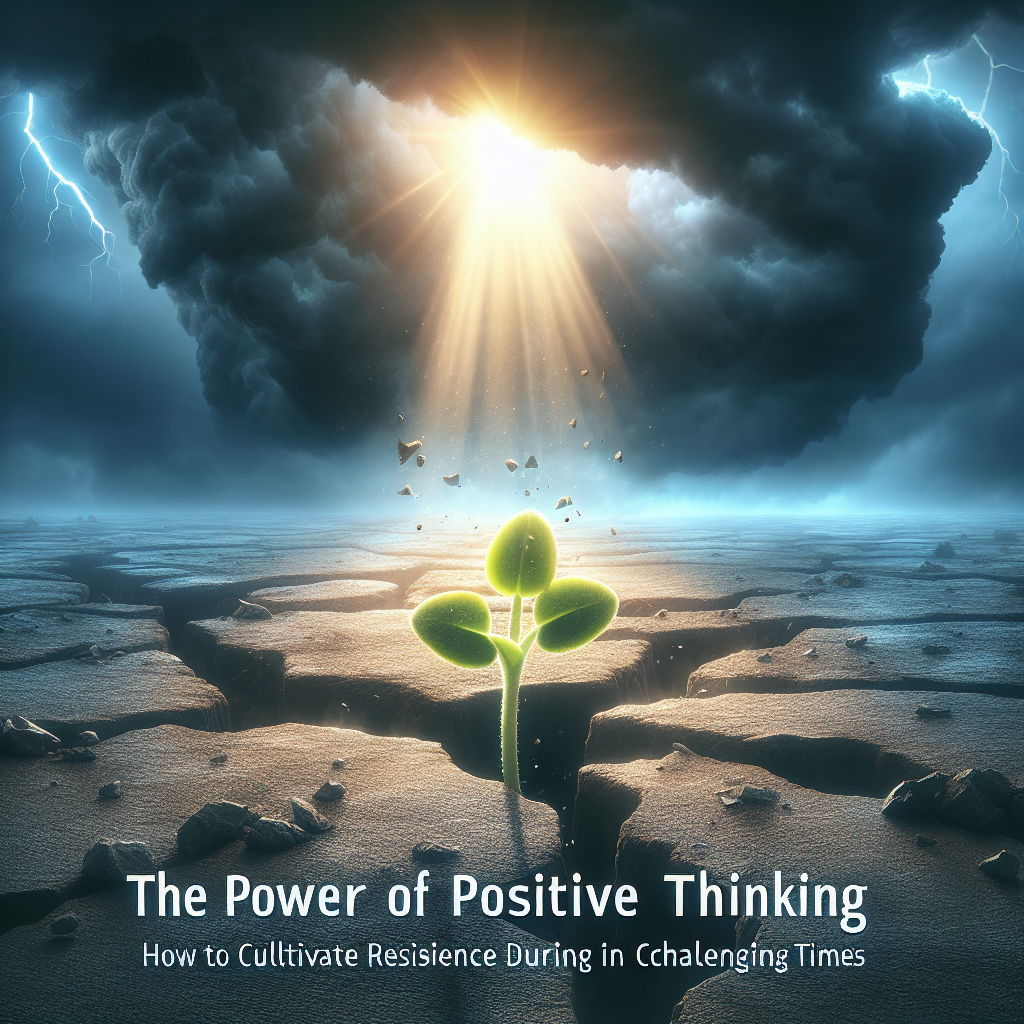In today’s fast-paced world full of constant challenges and uncertainties, cultivating a positive mindset is crucial for navigating through difficult times. The power of positive thinking can have a profound impact on our mental and emotional well-being, helping us build resilience and overcome obstacles with greater ease. In this article, we will explore how you can cultivate a positive mindset and develop resilience in the face of adversity.
What is Positive Thinking?
Positive thinking is a mental attitude that focuses on the good in any given situation, rather than dwelling on the negative aspects. It involves reframing challenges as opportunities for growth, staying optimistic in the face of setbacks, and maintaining a hopeful outlook for the future. Positive thinking is not about ignoring or denying reality but rather about approaching challenges with a constructive and solution-oriented mindset.
The Power of Positive Thinking
Research has shown that positive thinking can have a significant impact on our overall well-being. Studies have found that people who practice positive thinking are generally happier, healthier, and more successful in various areas of their lives. Positive thinking can help reduce stress, improve resilience, enhance relationships, and even boost physical health.
When we adopt a positive mindset, we are better able to deal with adversity and bounce back from setbacks. Positive thinking allows us to approach challenges with a sense of confidence and optimism, rather than fear and doubt. This mindset shift can make a world of difference in how we perceive and respond to difficult situations.
Cultivating Resilience
Resilience is the ability to bounce back from adversity, adapt to change, and thrive in the face of challenges. Cultivating resilience is essential for navigating through tough times and emerging stronger on the other side. Here are some strategies for building resilience through positive thinking:
1. Practice Gratitude: One of the simplest ways to cultivate a positive mindset is to practice gratitude. Take time each day to focus on the things you are grateful for, no matter how small they may seem. Gratitude can help shift your perspective from what is lacking to what is abundant in your life.
2. Stay Optimistic: Optimism is a key component of positive thinking and resilience. Believe in your ability to overcome challenges and trust that things will work out in the end. Maintain a hopeful outlook, even when things seem bleak.
3. Reframe Challenges: Instead of seeing challenges as insurmountable obstacles, view them as opportunities for growth and learning. Reframe setbacks as temporary setbacks rather than permanent failures. Look for the lessons and silver linings in every challenge you face.
4. Surround Yourself with Positive People: The company you keep can have a significant impact on your mindset and resilience. Surround yourself with positive, supportive, and uplifting people who encourage and inspire you to be your best self.
5. Practice Self-Care: Taking care of your physical, mental, and emotional well-being is essential for building resilience. Make time for activities that nourish your soul, such as exercise, meditation, hobbies, and spending time with loved ones.
Frequently Asked Questions about Positive Thinking and Resilience:
Q: Can positive thinking really make a difference in challenging times?
A: Yes, research has shown that positive thinking can help improve mental and emotional well-being, reduce stress, and build resilience in the face of adversity.
Q: How can I cultivate a positive mindset when I’m facing a difficult situation?
A: Start by practicing gratitude, staying optimistic, reframing challenges, surrounding yourself with positive people, and practicing self-care.
Q: Is it possible to build resilience even if I’m not naturally optimistic?
A: Yes, resilience is a skill that can be developed and strengthened over time. By practicing positive thinking and implementing resilience-building strategies, you can enhance your ability to bounce back from challenges.
Q: What are some practical ways I can start cultivating a positive mindset today?
A: Some practical ways to cultivate a positive mindset include starting a gratitude journal, setting positive affirmations, engaging in mindfulness practices, and seeking professional support if needed.
In conclusion, the power of positive thinking is a valuable tool for building resilience and navigating through challenging times. By adopting a positive mindset, practicing gratitude, staying optimistic, reframing challenges, and taking care of your well-being, you can enhance your ability to bounce back from adversity and thrive in the face of uncertainty. Remember that resilience is a skill that can be developed and strengthened with practice, so don’t be afraid to lean into the power of positive thinking to overcome obstacles and emerge stronger on the other side.




Leave A Comment